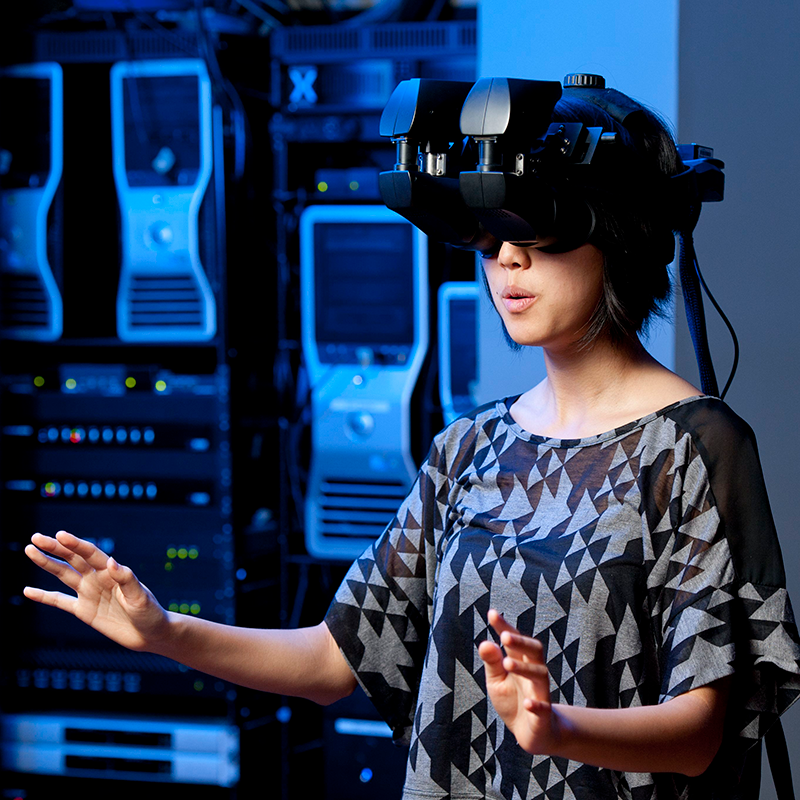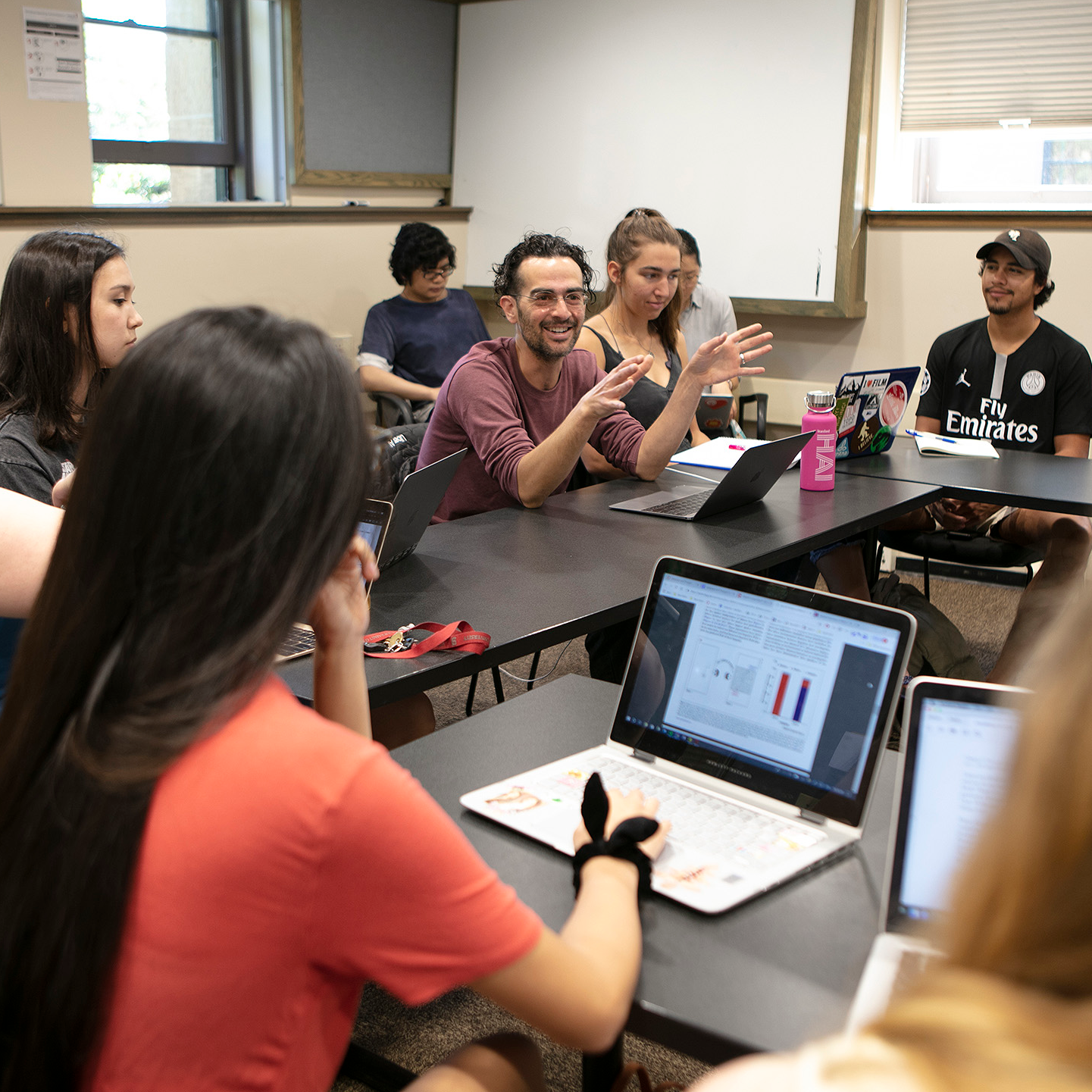The Human Experience
The School of Humanities and Sciences (H&S) is the center of a liberal arts education at Stanford, and many of its departments are physically located in the Main Quad. Anchored by four historic “corners” associated with history, language, math, and geology, the Main Quad comprises the original buildings of the university, which are home to communication, English, human biology, psychology, and philosophy, among many other fields of study.
In H&S, free, open, and meaningful inquiry is pursued across disciplines through foundational, curiosity-driven, and applied research. In humanities, arts, social science, and natural science classes, students learn to think critically, argue persuasively, and probe deeply as they explore complex questions about themselves and the world around them. Together with world-renowned faculty, they fuel discoveries and push the boundaries of knowledge.

Learning Across Disciplines
H&S offers many interdisciplinary programs of study that bridge knowledge and methods from multiple fields. For example, the Public Policy Program connects the tools of economics, political science, philosophy, psychology, and law with their real-world policy applications; the Center for Comparative Studies in Race and Ethnicity’s programs foster research and learning about race and ethnicity through literature, art, music, psychology, religious studies, and sociology; and the Human Biology Program approaches understanding the human being from biological, behavioral, social, and cultural perspectives. Working across disciplines is a hallmark of research at Stanford.

The Human Story
Stanford faculty and students lead the interpretation and explanation of the human experience in our rapidly changing world. They ask probing questions and explore ideas, cultures, and peoples to produce scholarship that helps us build our understanding of others and ourselves. With the vast amount of our cultural record now online and the continuous development of new digital tools and methods, there is unprecedented opportunity to expand our knowledge of the human story, which, ultimately, benefits the world.

Society’s Challenges
Stanford social scientists explore how humans organize and understand them-selves — as individuals, communities, and international systems — and how their actions influence economics, culture, and society. Using both data-driven and human-centered approaches, faculty and students are at the forefront of advancing our understanding of the world through research related to economics, communication, political science, psychology, anthropology, and sociology. Through theoretical models and real-world solutions, social scientists are working to understand and address 21st-century challenges.